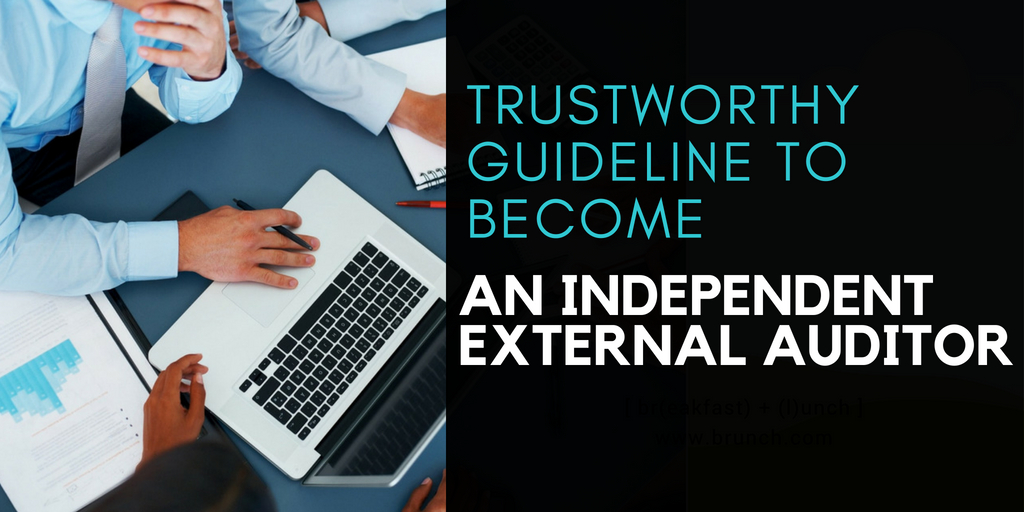
In today’s economy, information and accountability play a huge role. Financial statements are used to fulfill a variety of purposes; they provide a company’s or a business’ management useful information about the financial position for a certain time period. So, if you are interested in switching your career to in-demand auditing jobs, you may want to consider becoming an independent external auditor.
In this blog…
You will learn your role: as in who are external auditors, why financial statements are important, what external auditors do with financial statements, how they work and what does it require to become an external auditor.
Since Financial Statements are the representations of management, preparing and evaluating them isn’t a cake walk.
So, only if you recognize that the preparation of these statements requires managerial skills to make essential accounting estimates and judgments and if you have the capability to determine the most appropriate accounting principles and methods among several alternatives within a framework, only then should you consider becoming an independent external auditor.
We hope that after reading this post, you get significant clarity about your freelance career as an independent external auditor.
Let’s start with:
Why Effective Financial Statements are Important?
Independent audit of a company’s financial statements is an important service to creditors, investors, and other stakeholders, participating in economic exchanges. Regardless of the size, type, whether for profit or not, all business entities need and use financial resources to fulfill goals. External financial statements offer information about the managerial stewardship, which is directed towards the common interest of various users. They become the foundation upon which investors, bankers, management make credit-related decisions.
Who is An External Auditor?
Independent external auditors, unlike internal auditors, are third-party consultants who review the company’s financial records independently. They are not hired by the organization. As per to Security and Exchange Act, all publicly traded companies must consult an external auditor for auditing. External Auditors are often chosen to determine financial health; this is because they don’t form any kind of relationship with employees and wouldn’t be biased in their evaluation and judgment.
In the financial sector, strict regulation often drives the need for independent external auditors. In fact, according to a recent study by Bureau of Labor Statistics, it is reported that employment demand of external auditors will grow by 11 percent by the year 2024.
What will be Your Work as an External Auditor?
Almost all external auditors are employed for a temporary period by the corporate stakeholders who have the intention to examine the authenticity of the company’s financial records. External auditors will also, like internal auditors, work over accounting books, payroll, invoices, purchase records and other financial records to spot any loopholes or red flags.
An external auditor’s first plan of action would be getting to know the organization and its operations. Following which, the auditor will determine whether the organization is conforming to the Generally Accepted Accounting Principles (GAAP).
The only crucial work of external auditors is finding misstatements due to error, fraud, and larceny. Once the work assigned is accomplished (evaluation and performing tests), external auditors get to the work of preparing detailed and impartial financial reports on ethics for company management.
“An external financial statement audit adds credibility to management’s financial statements.
The report you provide as an external auditor will determine access to capital markets, acquisitions, mergers and investments in a company. Not only that, company decisions will also be made upon the degree of assurance you give that the financial statements are free of errors and fraudulent activities.
To Provide Assurance an Independent External Auditor Assesses:
- Whether transactions and amounts are fairly reported in the financial statements without any omissions.
- Whether the transactions and amounts recorded in the financial statements took place during the financial year or period covered by the statements.
- Whether the assets and liabilities mentioned in the financial statements are also mentioned in the balance sheet.
- Whether the assets owned by the entity and the liabilities owed by the entity mentioned at the balance sheet date are reported as per accounting standards.
- The financial statement amounts – assets, liabilities, profit, loss, revenue, and expenses are accurately valued in adherence to the accounting standards.
- Whether the financial statements are properly classified, described and disclosed as per the policies and guidelines laid in accounting principles.
As an independent external auditor, your job will entail forming an opinion on the overall fairness of financial statements by following the above assessments. Your opinions will be communicated to the management via the elaborated report.
- A standard auditor’s report includes an unqualified opinion – if the tie financial statements present the financial position of the organization quite fairly.
- Whereas a qualified report explains to readers the concerns the auditor has expressed about matters affecting financial statements, such as accounting policies selection, application method, and financial statement disclosure.
Where Can Independent External Auditors Work?
Generally, External Auditors specializes in a specific industry, such as healthcare, manufacturing, real estate, logistics, construction and so on. This helps them to understand the ins and outs of a business. You won’t be associated with a single organization though and typically you will be hired by public accounting and auditing firms.
Sometimes, external auditors are also hired by legal firms, state, local and federal government agencies to watch over targeted corporations. You can also get associated with companies as a consultant. Your work will be quite regular, with almost 40 hours a week and may entail traveling to client’s location to review business operations.
Becoming an Independent External Auditor
You have to start your career by studying for a bachelor’s degree that has maintained accountancy, finance, business administration, commerce, statistics, and business mathematics. You can also enroll in special skill-based programs for auditing.
Once you are done with your education, you have to obtain two years of professional experience in accounting. You can start your career by joining as clerk, bookkeeper, and junior auditor.
However, a Master’s Degree in Accounting (MAcc) or MBA in Finance and Accounting can further speed-up your promotion rate. If you want to be an Auditor, filing SEC reports or CPA then you ought to fulfill the 150 hours of requirement and take part in CFE examination.
Did you find this article a useful tool for freelancers? If yes feel free to share your opinions below.




